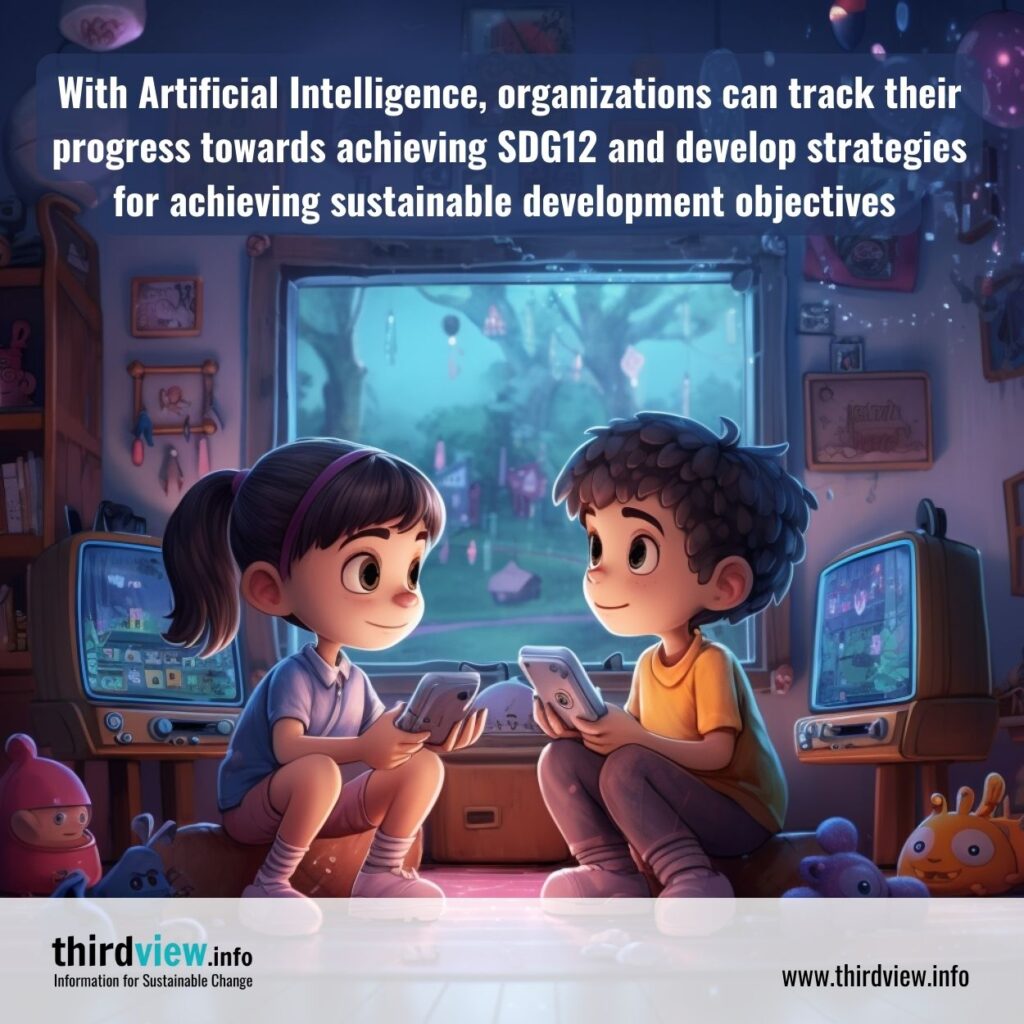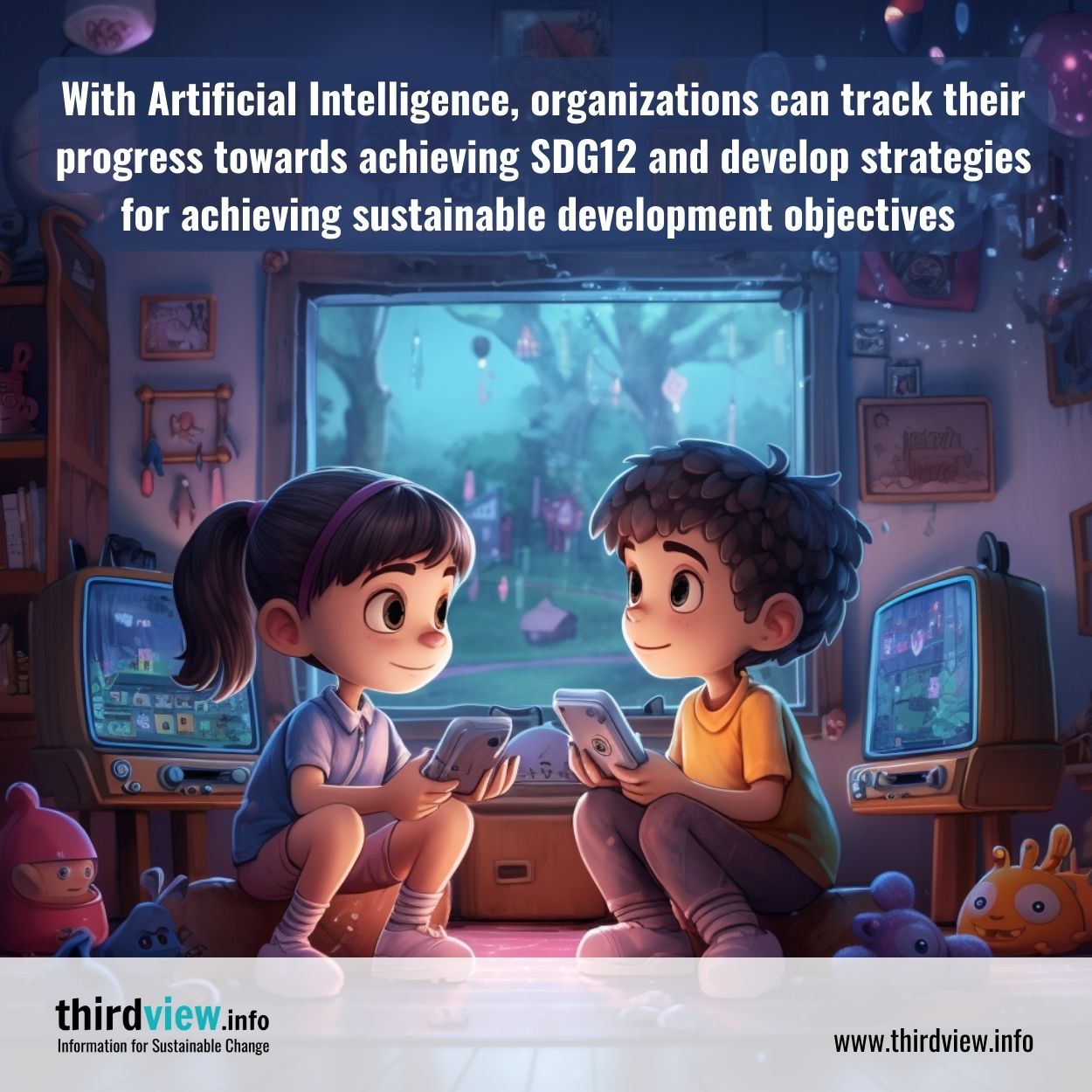The United Nations has adopted 17 Sustainable Development Goals (SDGs) for its 2030 Agenda. These goals are designed to help end poverty and hunger, reduce inequality, protect the planet’s resources and create a more sustainable environment. In this blog post, we will be looking at the role of Artificial Intelligence (AI) in achieving SDG 12 – Responsible Consumption and Production.
AI technology is already being used in many industries to achieve greater efficiency, automation and optimization. It can also be used to support organizations in achieving SDG 12 by helping them monitor their operations for opportunities for improvement. AI-based solutions can identify wasteful or inefficient processes that are taking place within an organization, as well as any potential issues with compliance or safety standards that need to be addressed. This data can then be used to develop targeted strategies for reducing waste across the organization while improving resource management.
AI can also be used to improve energy efficiency within an organization. Machine learning algorithms can detect patterns in energy usage over time, allowing organizations to better anticipate when peak periods will occur and plan accordingly. This data can then be used to implement strategies such as dynamic pricing or demand response programs that will help reduce overall energy consumption and costs for the organization.
Finally, AI-enabled systems can be used by organizations to track their progress towards achieving SDG 12. By using predictive models such as natural language processing (NLP), these systems can assess an organization’s performance relative to other firms in their industry or against predetermined targets set out in the SDGs themselves. This information can then be used by decision-makers within the organization to identify areas where improvements need to be made and develop strategies for achieving sustainable development objectives.
In conclusion, AI technology is playing an increasingly important role in helping organizations achieve SDG 12 – Responsible Consumption and Production – through increased efficiency, optimization and monitoring of operations. As AI technology continues to evolve, it is likely that it will play an even bigger role in helping organizations meet their sustainability goals in the years ahead. As such, it is essential that business leaders, public policymakers and sustainability advocates alike understand how AI technology works so that they can leverage its potential for promoting a more sustainable future for us all.


